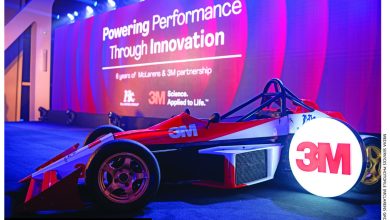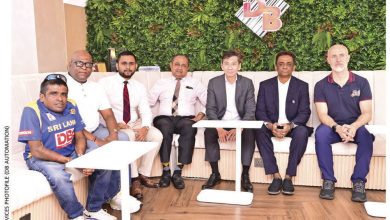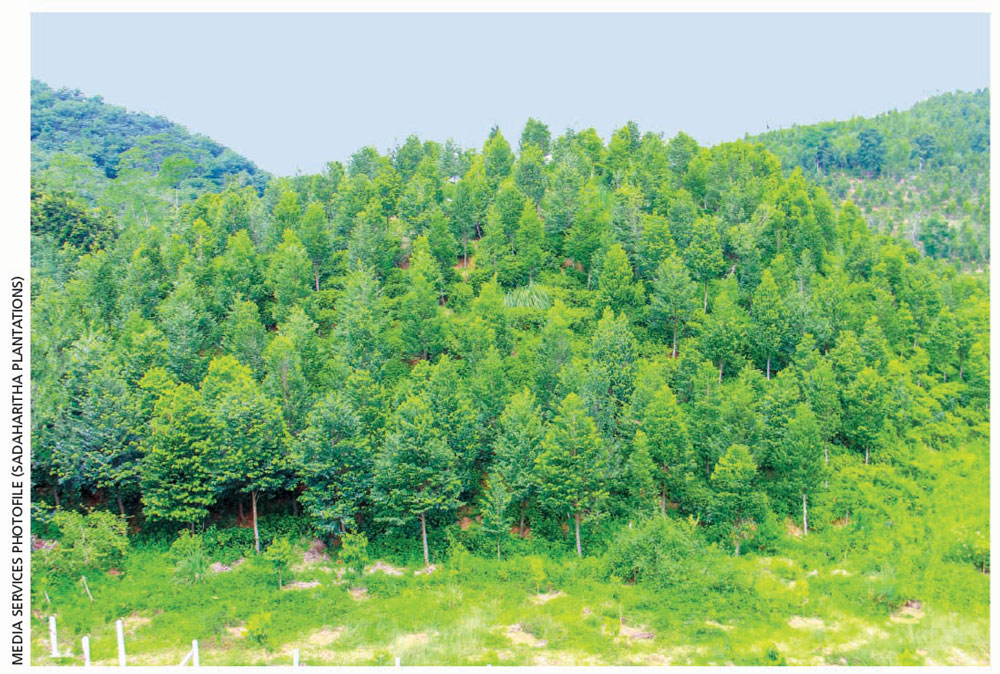 Q: How has Sadaharitha Plantations contributed to agriculture and forestry in Sri Lanka?
Q: How has Sadaharitha Plantations contributed to agriculture and forestry in Sri Lanka?
Sathis Nawarathna (SN): The Sadaharitha Group has been in operation for 22 years and has over 8,300 acres of plantations, ranging from agarwood (oud) teak, sandalwood, rambutan, vanilla and palm oil, to fruit and vegetable cultivations for export to hotel chains around the world.
Sadaharitha takes pride in having introduced agarwood to Sri Lanka 10 years ago and laying the foundation for what is known in the Middle East as liquid gold for its value.
We have created an export sector with agarwood revenues in Singapore amounting to over US$ 1 billion – in its capacity as a trading hub.
Sadaharitha is positioned as the world’s largest licenced commercial agarwood grower with its own research and development capabilities to produce the world’s finest oud used in perfumes, incense and even painkillers.
Our operations span from plantations to branded retail outlets in Sri Lanka and the Middle East. We are probably the only Sri Lankan company to have branded perfume outlets overseas, commanding a premium price with 100 percent value addition and foreign exchange flowing to the country.
Q: What are the technologies being used to enhance commercial forestry?
SN: We are pioneering the use of high-tech nurseries in agarwood plantations; utilise seedlings of very good quality that were obtained from selected seeds; plant and maintain plants using quality fertilisers; and apply chemicals using drone technology. Additionally, we have our own inoculation method (SP tech), which is a first in Sri Lanka.
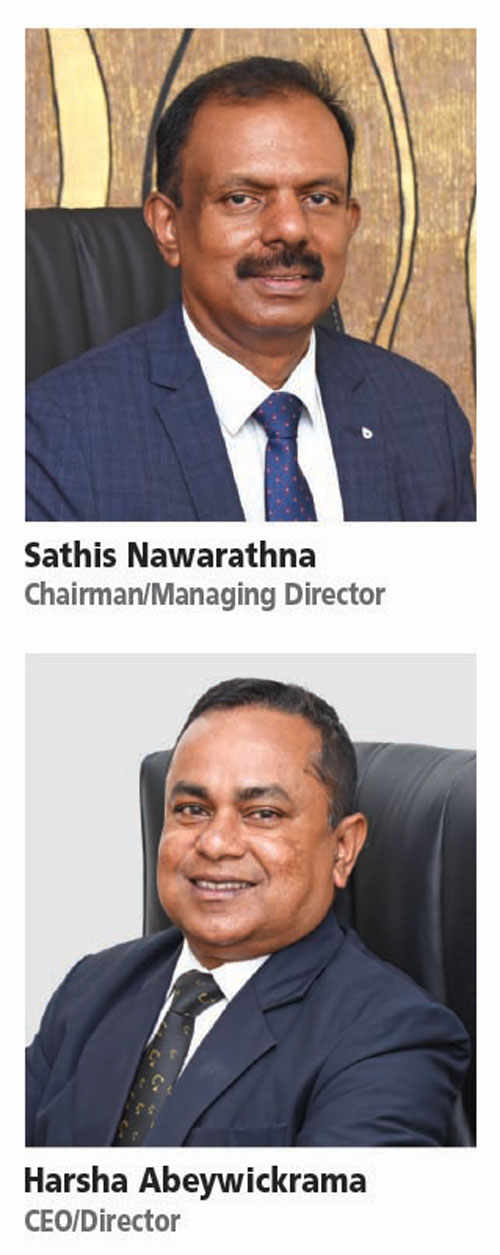 Q: Are technological developments being leveraged by the local sector?
Q: Are technological developments being leveraged by the local sector?
SN: The agriculture sector has been changing due to technological developments and is using more technology in farming than ever before. The use of fertiliser and pesticides is reduced with the help of advanced agricultural software.
Upcountry for instance, farmers are cultivating vegetables in open fields. As a solution for this, technologically advanced and fully automated protected houses are made. We call this controlled environment agriculture. Local farmers are now moving to this concept.
Automated systems regulate temperature, humidity, lighting, watering and other factors that affect plant growth. They also monitor and control the delivery of nutrients, pesticides and other substances. It also helps reduce labour costs, and improves the consistency and quality of plants.
As a result of technological developments, a new agricultural concept was born – soil-less cultivation or hydroponic cultivation. This is the technique of growing plants using a water-based nutrient solution rather than soil and can include an aggregate substrate or growing media, such as vermiculite, coconut coir or perlite.
Biotechnologies, nanotechnologies and information technologies enable the possibility of increasing crop yields. Agriculture is undergoing an evolution – technology is becoming an indispensable part of every commercial farm.
Q: What prompted your company to diversify into mobile apps?
SN: Our mobile app Ithiry was launched during the economic crisis. With the growth of the supplier base, we offered it to others at a nominal fee to help Sri Lankans navigate these tough economic conditions.
The intention of getting into mobile apps was to use technology as a platform to ease the burden on Sri Lankans. The main objective was also diversification to minimise risk in the business.
Q: How would you describe the market competition?
Harsha Abeywickrama (HA): The competition is characterised by the presence of various players vying for a larger share of the market. Factors such as technological advancements, consumer preferences, regulatory shifts and global economic trends all contribute to the competition.
We pay special attention to innovation and research. By staying at the forefront of technological advancements, we can introduce innovative products and services that meet customer needs.
Swift decisions are vital in today’s environment. We must be agile in responding to market shifts, regulatory changes and competitive threats. This requires streamlined communication channels, empowered teams and a willingness to adapt our strategies.
Enhancing operational efficiency enables us to deliver products and services faster, at lower costs and higher quality.
Our success hinges on attracting top tier talent and nurturing their skills. Fostering a culture of continuous learning and growth positions us to tackle challenges with creativity.
Diversifying our product portfolio and expanding into complementary markets provide buffers against sudden market shifts. And building a strong brand and maintaining a compelling market presence differentiate us from competitors.
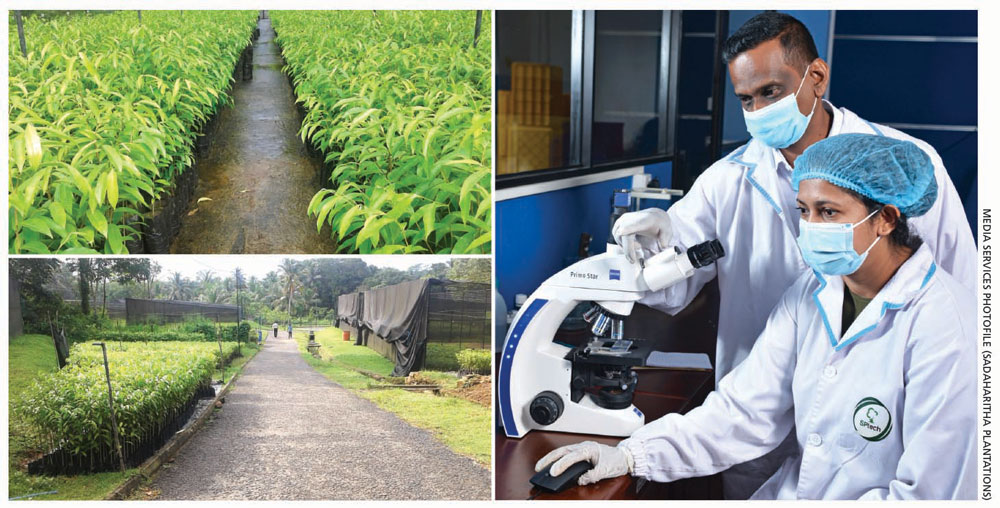 Q: What are the latest innovations in forestry?
Q: What are the latest innovations in forestry?
SN: In plantation monitoring and ‘agritech,’ we are leading the way in South Asia by being the first to have RFID tags in every single tree. These RFID tags will help track the growth of a tree along with its fertiliser and water content, and other critical factors.
In addition to this, our research and development lab has also developed a proprietary inoculation technology that forms the bedrock of oud formation in agarwood trees. We’re one of the few companies in the world to develop such technology and we have our own chemists working on such innovations including some from Australia.
Q: How do you tackle environmental impacts and risks?
HA: Identifying and mitigating environmental impacts and risks in the plantations industry is not only a responsibility but also a crucial element of ensuring the sustainability and long-term viability of our operations.
We conduct regular environmental audits to consider factors such as land use, water consumption, waste generation, biodiversity and greenhouse gas emissions.
Assessing the biodiversity within and around our plantations enables us to identify species at risk, habitat degradation and potential opportunities for habitat restoration. This not only contributes to environmental conservation but also ensures the health of our ecosystems.
We assess climate change impacts such as extreme weather and changing precipitation patterns. This helps us to enhance our climate resilience.
Our policies promote responsible land management practices including the protection of high conservation value areas, reforestation efforts and the maintenance of buffer zones to prevent habitat destruction.
We have a strict zero deforestation commitment in place, underscoring our dedication to conserving natural ecosystems.
Our integrated pest management policies prioritise the use of natural predators, biological controls and non-chemical methods to minimise the use of harmful chemicals.
Q: What is the role of the private sector in achieving sustainable economic growth?
SN: The private sector needs to identify strengths that are unique to Sri Lanka, and develop innovative ways of adding value, branding and telling our story to the world.
In agriculture, the unique placement of Sri Lanka in the middle of the Indian Ocean has produced the world’s best tea, cinnamon, gems and now agarwood. Therefore, we need to promote our unique offering as premium products meeting the highest global standards.
Our Síor Verde perfume brand retails overseas as a premium brand, positioning Sri Lankan oud as the finest in the world.
Q: Is the country doing enough to protect the environment?
HA: Our country has taken significant steps towards reducing carbon emissions and implementing environmental conservation initiatives. They reflect our commitment to preserving our planet for future generations.
One of the main hurdles we face is air and water pollution. Industries and infrastructure must adopt more sustainable practices and adhere to stringent regulations to minimise their environmental impact.
The loss of biodiversity – the destruction of habitats and ecosystems due to urbanisation, deforestation and industrialisation – poses a significant threat to our environment.
Climate change remains a formidable challenge. It is imperative to intensify efforts to mitigate and adapt to these changes. This includes accelerating our transition to clean energy sources, enhancing our resilience against climate related disasters and actively participating in global climate initiatives.
Inadequate waste management is another obstacle.
Public awareness and education play a crucial role. We must invest in educational campaigns to encourage responsible behaviour.
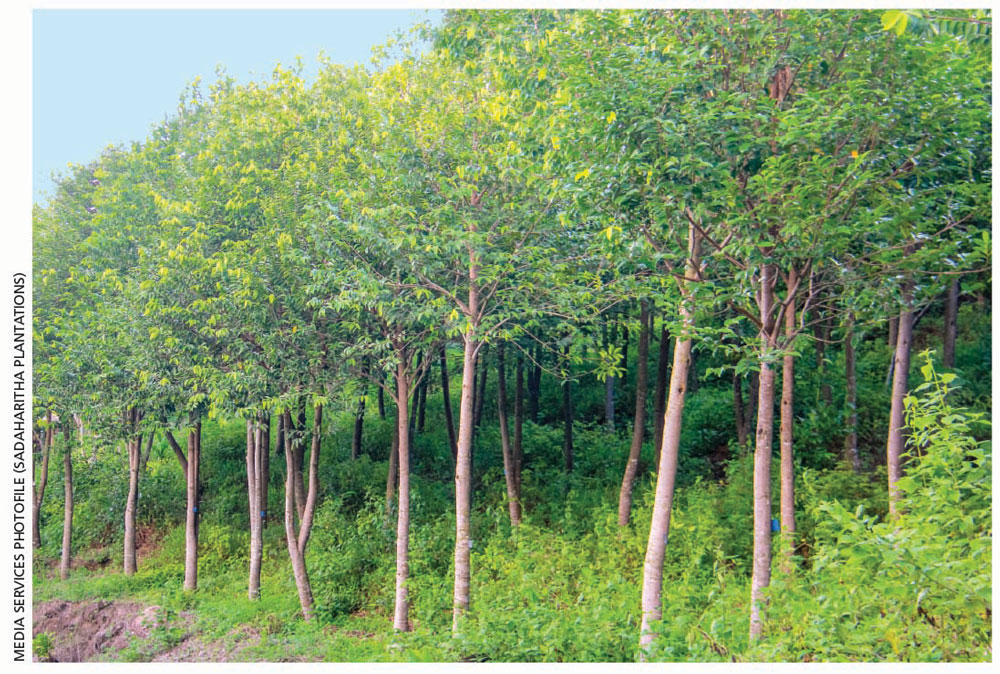 Q: What is the role of corporates in making Sri Lanka ‘green’?
Q: What is the role of corporates in making Sri Lanka ‘green’?
HA: Corporates have significant influence on our society and economy. They possess the resources, technology and innovation required to drive positive change and contribute to the preservation of our environment.
They must integrate environmental sustainability into their core business strategies. This involves adopting practices that minimise their carbon footprints, reduce waste generation and promote the efficient use of resources.
Companies should implement cleaner production methods, invest in renewable energy sources and optimise supply chains to reduce environmental impacts.
They can play a pivotal role in fostering innovation. By supporting the research and development of eco-friendly technologies, they can contribute to the creation of new solutions that address environmental challenges. This could encompass advancements in renewable energy, waste management, water conservation and more.
Equally important is their role in promoting sustainable consumer behaviour. Through product design, marketing and consumer education, businesses can influence the choices people make. Encouraging the use of eco-friendly products and services can create a ripple effect throughout society.
Q: What are your organisation’s future plans?
SN: Our decision to produce products from agarwood and vanilla is a testimony to our commitment to innovation and excellence. Through our perfume brand Síor Verde, we have already gained recognition for our commitment to quality and luxury.
The addition of agarwood-based products combined with gold and silver to produce unique jewellery pieces further enhances our brand’s exclusivity and artistic expression. These will be available for purchase at our outlet Oud Galleria at One Galle Face Mall.
Furthermore, our investments in Madagascar – where we own 2,000 acres of vanilla and 3,000 acres of palm oil plantations – highlight our dedication to sustainable practices and global outreach. By introducing products derived from vanilla and palm oil, we aim to capitalise on their unique qualities and bring them to both domestic and international markets.
This move not only elevates the economic prosperity of Sri Lanka but also reinforces our commitment to ethical sourcing and environmentally conscious production methods.
As we expand our market presence, we anticipate a significant influx of revenue that will also contribute to the development of local communities and industries. I wish to emphasise that our future endeavours are aligned with our core values of excellence, sustainability and innovation.
Through the synergy of Síor Verde, our Madagascar plantations and forward sales agreement for sandalwood with a highly reputed international organisation, we are poised to make an impact on both the global market and the economic growth of Sri Lanka.
– Compiled by Allaam Ousman
 INTERVIEWEE DETAILS
INTERVIEWEE DETAILS
Sathis Nawarathna
Chairman
Harsha Abeywickrama
CEO
COMPANY DETAILS
Telephone:5144400/5234000/7234800 | Email:info@sadaharitha.com | Website:www.sadaharitha.com



